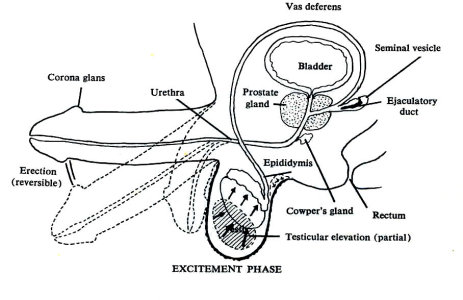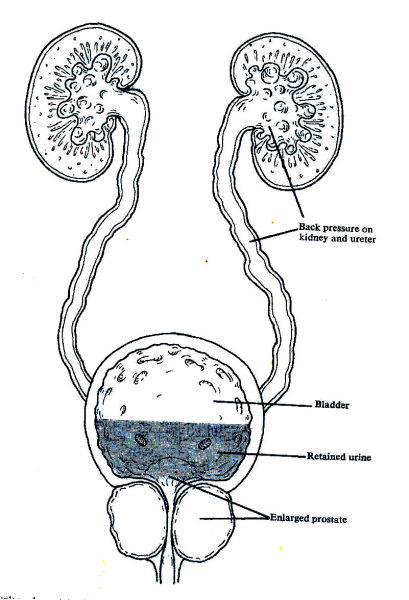Prostate Cancer
Home / Prostate Cancer
In its early stages, prostate cancer may not present any symptoms. As it progresses slowly, it may begin to show a few symptoms. Men above 70 diagnosed with prostate cancer and those with PSA level below 2.5 who show no sign of deterioration are often advised not to treat the cancer but engage in what is termed “active surveillance” or “watchful waiting.” Active surveillance includes diet, exercise and stress management, and those who opt for this are often perceived to have better quality of life than those who are treated. However, monitoring the PSA level regularly is important for those who choose watchful waiting.

Normal Prostate
- Difficulty in urinating.
- Urinary retention (bladder retains urine)

Enlarged Prostate
- Weak urinary flow. (narrow urine streams)
- Burning / painful urination
- Difficulty stopping urination
- Erection difficulty
- Bloody urine
- Painful ejaculation
- Frequent feeling of urgency to urinate, especially at night.
- Pain in the pelvis, thighs and lower back.
Surgery and radiotherapy are the conventional treatment often used for prostate cancer. Chemotherapy is generally not used for prostate cancer because of its disappointing results.
The most common treatment for men who have localized prostate cancer is radical prostatectomy (removal of the whole prostate gland). Surgery may entail the removal of neurovascular structures that lead to the penis, which can result in erectile dysfunction and incontinence.
This includes external beam radiation therapy and brachytherapy, in which radioactive material sealed into pellets, rods, catheters or wires is put inside the prostate. Radiation of the prostate and its surrounding areas often causes gastrointestinal toxicity. Cancer Communication Newsletter has come out strongly against mainstream media for dangerously distorting the facts about the conventional procedure, which includes failure to disclose the hazardous side effects of radiation in prostate cancer treatment. According to the Cancer Communication Newsletter, radiation therapy (brachytherapy) – implanting of radiation seeds in the prostate gland – given routinely for early signs of prostate cancer can actually hasten the development of the cancer. In less than 2 months after radiation treatment, prostate cancer cells can double, while unradiated cancer cells may take an average of 4 years to double. (SOURCE: Cancer Communication Newsletter, 12:4 September 1996, 15-16).
This therapy given to men with prostate cancer has many side effects, including menopausal symptoms like hot flashes, mood swing and sleep disturbance. Another possible side effect is osteoporosis. Androgen suppressors (drugs that suppress the production of male hormones, especially testosterone) are often used. Commonly used androgen suppression drugs include leuprolide (lupron), bicalutamide (casodex), and gosereline (zoladex). Prostate cancer is a cancer that often develops slowly, which gives men sufficient time to educate themselves about the treatment options available. Considering all the risks and serious side effects of conventional medical procedure for prostate cancer, the best treatment options worth pursuing by men with prostate cancer are the alternative therapies like those offered at Immanu-el Cancer Help Centre. They entail no surgical mutilation, they are non-toxic and they are completely safe.
Did You Know?
Most men survive prostate cancer.
Lorem ipsum dolor sit amet, consectetur adipiscing elit. Ut elit tellus.
